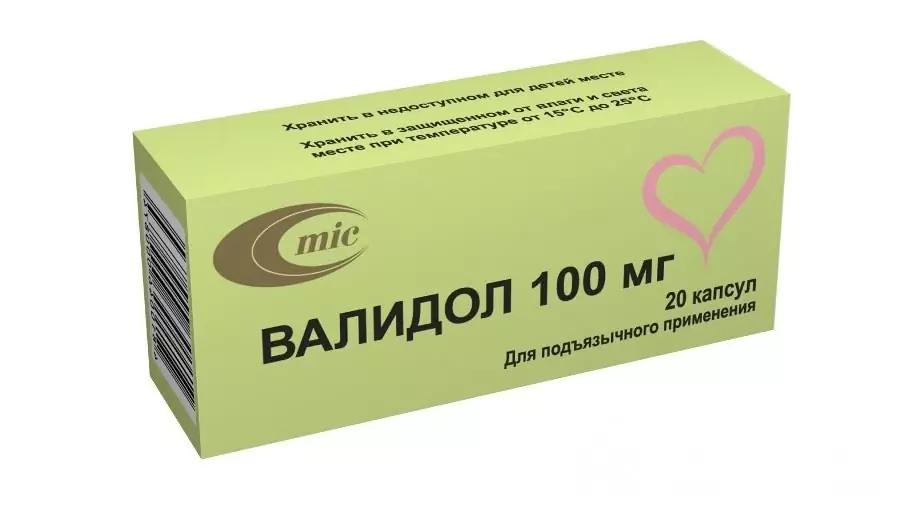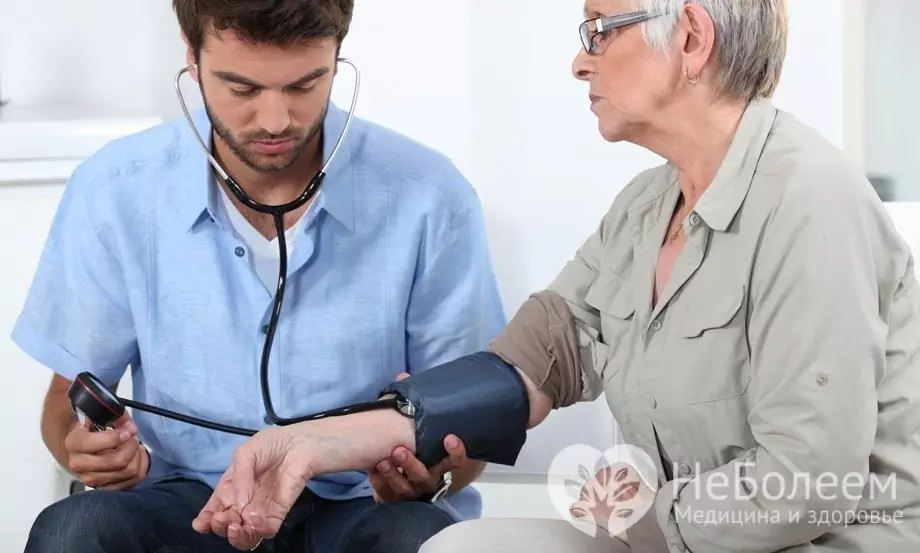- Author Rachel Wainwright wainwright@abchealthonline.com.
- Public 2023-12-15 07:39.
- Last modified 2025-11-02 20:14.
Overdose with Validol
Validol is used to relieve pain in the heart region that occurs against the background of cardioneuroses. Often, doctors recommend taking it for angina attacks, but only in conjunction with nitroglycerin. In addition, Validol has a good effect on motion sickness, and also finds application in the complex therapy of neurotic conditions.

Source: mic.by
Validol contains two active ingredients - menthol and isovaleric acid. Isovaleric acid has a sedative, that is, a sedative and reduces nervous tension. Menthol causes vasodilation, including coronary ones.
It is believed that Validol is a completely harmless remedy; it is often compared to ordinary mint dragees. This misconception is the main reason for drug abuse leading to overdose.
What dose of Validol is needed for an overdose?
Validol is taken sublingually, i.e. it dissolves under the tongue. In the sublingual region, cold nerve receptors are located, their irritation with menthol leads to a reflex release into the bloodstream of biologically active substances: enkephalins, endorphins, kinins and histamine. Enkephalins and endorphins are endogenous opiates (morphine-like substances). They improve mood, have a vasodilating and analgesic effect. When Validol is taken, these biologically active substances are released in small amounts, therefore, even when taking large doses of the drug, they do not overdose.
More dangerous when using high doses of Validol is the release of histamine, an allergy mediator, into the bloodstream. Its increased content increases the allergization of the body, as a result of which pronounced allergic reactions can develop not only to Validol, but also to any other substances.
The maximum daily dose of Validol is 300 mg or 6 tablets. An overdose in adults can occur when taking 7-10 tablets at a time, in children - a much smaller amount (not exactly established, it is determined by the individual characteristics of the organism).
Signs of overdose
An overdose of Validol leads to an increase in the content of kinins in the body. Together with enkephalins, endorphins and histamine, they lead to a decrease in the tone of the muscular membrane of the blood vessels. In people with hypotension, the result can be a sharp drop in blood pressure with the development of a fainting or collaptoid state.
Kinins enhance the secretory activity of the glands (including the gastric mucosa, salivary and lacrimal). Also, with an overdose with Validol, the functions of the central nervous system, including the respiratory and vasomotor centers, are inhibited, this effect is especially pronounced in children.
Signs of an overdose with Validol:
- nausea, sometimes vomiting;
- increased salivation and lacrimation;
- lowering blood pressure;
- dizziness;
- headache;
- orthostatic collapse (acute vascular insufficiency with a sharp change from horizontal to vertical);
- tachycardia.
An overdose of Validol is often accompanied by allergic reactions of an immediate type (urticaria, anaphylactic shock, Quincke's edema), food, perfumes and deodorants, washing powder, detergents, medicines, etc. can act as allergens.
The development of an allergic reaction can be assumed based on the following signs:
- maculopapular itchy rash, the elements of which quickly increase and merge with each other;
- puffiness (face, parts of the body, larynx);
- conjunctivitis;
- nasal congestion;
- labored breathing;
- weakness;
- dizziness;
- cold clammy sweat;
- drop in blood pressure.

Source: depositphotos.com
First aid for overdose Validol
Validol is taken sublingually, i.e. the tablets dissolve under the tongue. With this method of administration, the substance is quickly absorbed into the bloodstream, practically without getting into the stomach. Therefore, in case of an overdose with Validol, gastric lavage is not performed. If the tablets did not dissolve in the mouth, but were taken orally, it is necessary to rinse the stomach: drink a few glasses of cool water and, irritating the root of the tongue, induce vomiting. Attention! It is impossible to wash the stomach at home for children of the first 3 years of life!
Validol is excreted in the urine. To increase its education, the patient should be given plenty of drink.
With the development of allergic reactions, it is necessary to take an antihistamine (Pipolfen, Tavegil, Suprastin, Zodak, Claritin).
Antidote
There is no specific antidote for Validol.
When is medical attention needed?
If an overdose of Validol is manifested only by nausea and a headache of low intensity, first aid measures are sufficient for the condition to improve. For more severe symptoms, see a doctor. Emergency medical attention is needed if an allergic reaction occurs or an overdose occurs in a child.
Treatment is symptomatic, i.e., correction of disorders that have developed in the body. With a sharp drop in blood pressure, vasopressor drugs are administered, in case of respiratory failure - respiratory analeptics. In allergy therapy, antihistamines and corticosteroids are used.
Possible consequences
Validol overdose is usually mild. With timely assistance, its symptoms disappear within 6-8 hours without any consequences. The prognosis worsens with an overdose in children in the first years of life, so there is a risk of respiratory arrest. Life-threatening complications - Quincke's edema and anaphylactic shock. With a delay in the provision of medical care, the condition of patients deteriorates rapidly, and a lethal outcome is possible.

Elena Minkina Doctor anesthesiologist-resuscitator About the author
Education: graduated from the Tashkent State Medical Institute, specializing in general medicine in 1991. Repeatedly passed refresher courses.
Work experience: anesthesiologist-resuscitator of the city maternity complex, resuscitator of the hemodialysis department.
The information is generalized and provided for informational purposes only. At the first sign of illness, see your doctor. Self-medication is hazardous to health!






